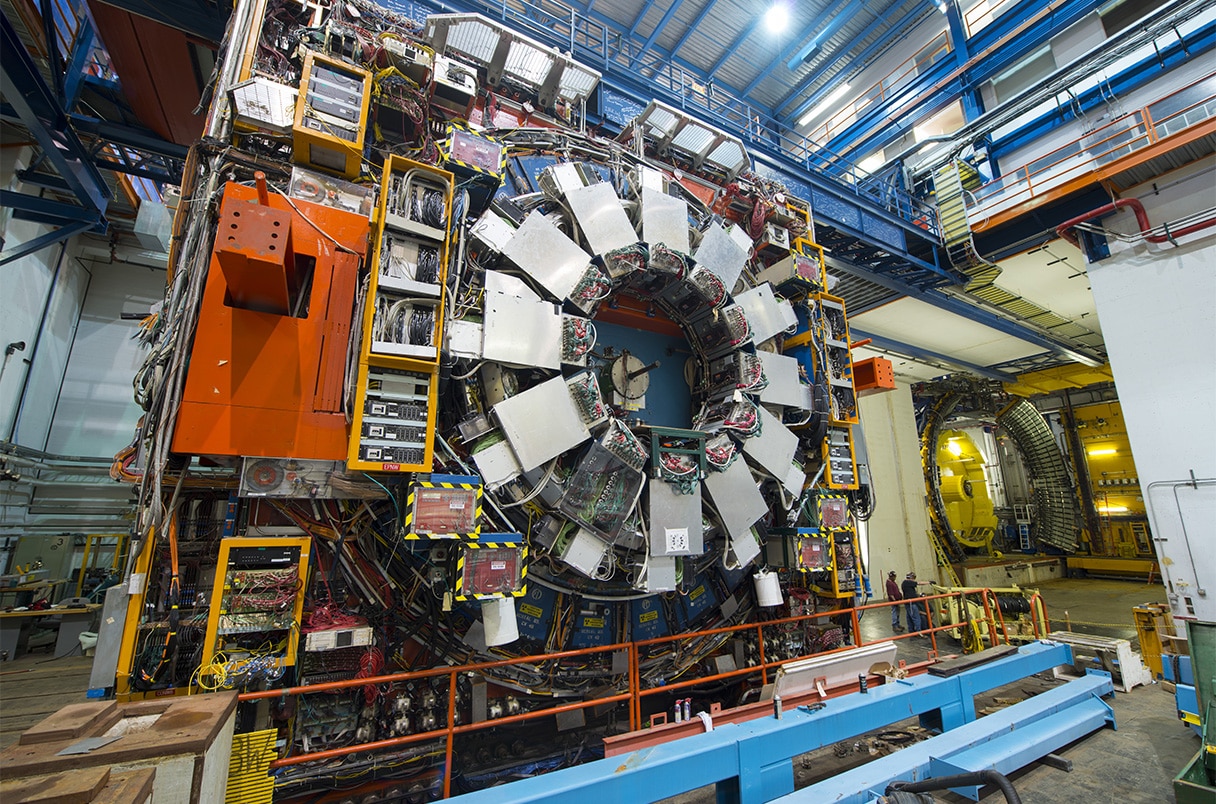2024 Nobel Prize in Physics.
The 2024 Nobel Prize in Physics was announced on October 8, under the Beijing time
Science - April 7, 2022 Vol. 376 No. 6589

Physicists have discovered that an elementary particle called the W boson appears to be 0.1% heavier - a tiny difference that could herald a dramatic shift in fundamental physics.
TodayIn thesThe measurement, reported in the journal Cience, came from an old particle collider at the Fermi National Accelerator Laboratory in Batavia, Illinois. The roughly 400 members of the Collider Detector at Fermilab (CDF) collaboration continue to analyze the W bosons produced by the collider, known as the Tevatron, tracking numerous sources of error to achieve unparalleled levels of precision.
If the supergravity of W relative to that predicted by standard theory can be independently confirmed, the discovery would imply the existence of undiscovered particles or forces and would lead to the first major rewriting of the laws of quantum physics in half a century.
"This will revolutionize the way we see the world," with implications that may even rival the discovery of the Higgs boson in 2012, physicist Sven Heinemeier of the Madrid Institute of Theoretical Physics ( Sven Heinemeyer) says he is not part of the CDF."The Higgs particle fits very well with the previously known picture. This will be a whole new field."
This discovery comes at a time when the physics community is yearning for flaws in the Standard Model of particle physics, the long-reigning set of equations that captures all known particles and forces. It is well known that the Standard Model is incomplete and that there are many unanswered questions, such as the nature of dark matter.
Thesis address:
High-precision measurement of the W boson mass with the CDF II detector
Reference link:
[1] https://www.science.org/content/article/mass-rare-particle-may-conflict-standard-model-signaling-new-physics
[2] https://www.quantamagazine.org/fermilab-says-particle-is-heavy-enough-to-break-the-standard-model-20220407/
The 2024 Nobel Prize in Physics was announced on October 8, under the Beijing time
At approximately 5:49 p.m. Beijing time on October 4, the Royal Swedish Academy of Sciences decided to award the 2022 Nobel Prize in Physics to French scientist Alain Aspect, American scientist John F. Clauser and Austrian scientist Anton Zeilinger for "their experiments with entangled photons, which established the non-validity of Bell's inequality and pioneered quantum information science. for their "experiments on entangled photons, for establishing the disproof of Bell's inequality, and for pioneering the science of quantum information".
Fermilab CDF releases new W boson results challenging the Standard Model